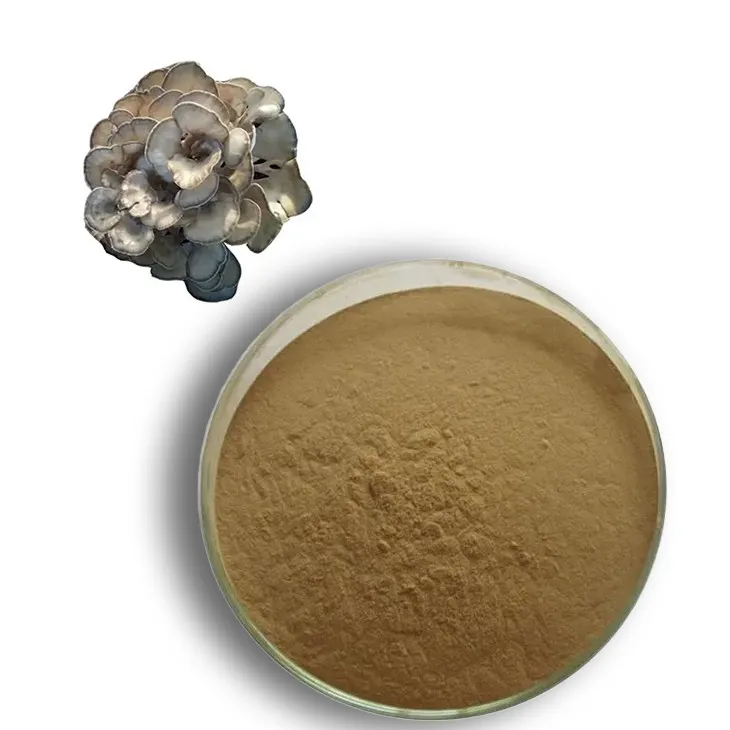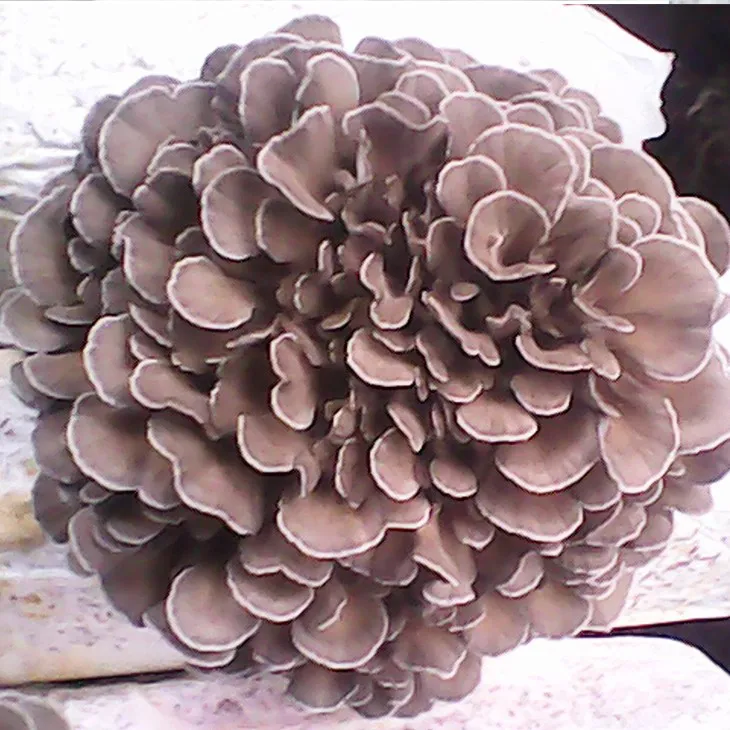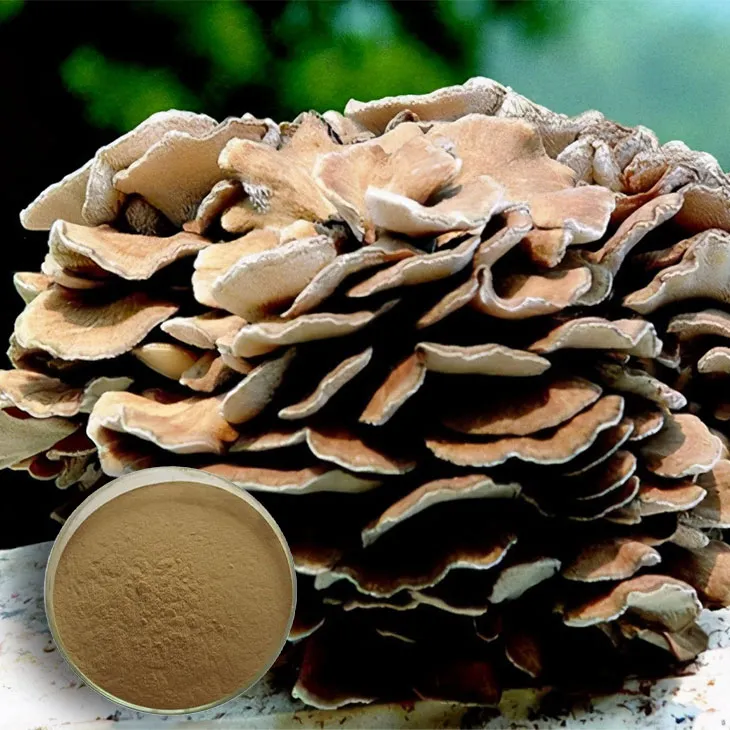- 0086-571-85302990
- sales@greenskybio.com
5 Effects of Maitake Mushroom Extract + Dosage, Side Effects
2024-11-12

1. Introduction to Maitake Mushroom Extract
Maitake mushroom, scientifically known as Grifola frondosa, has been used in traditional medicine for centuries. The extract of this mushroom is gaining popularity in the modern world due to its potential health benefits. Maitake extract is rich in various bioactive compounds, such as polysaccharides, beta - glucans, and terpenoids, which are thought to be responsible for its therapeutic effects.

2. Five Powerful Effects of Maitake Mushroom Extract
2.1. Immune - Boosting Properties
One of the most well - known effects of Maitake extract is its ability to enhance the immune system. Beta - glucans present in the extract stimulate the activity of immune cells, including macrophages and natural killer cells. These cells play a crucial role in defending the body against pathogens, such as bacteria, viruses, and fungi. Studies have shown that regular consumption of Maitake extract can increase the production of cytokines, which are signaling molecules that regulate the immune response. This can help the body to better fight off infections and diseases.
2.2. Anti - Cancer Potential
Maitake extract has shown promising anti - cancer properties in pre - clinical and some clinical studies. The polysaccharides in the extract are believed to have immunomodulatory effects that can enhance the body's natural defenses against cancer. They may also directly affect cancer cells by inducing apoptosis (programmed cell death) and inhibiting tumor cell proliferation. Additionally, Maitake extract may help to reduce the side effects of chemotherapy and radiotherapy, improving the quality of life for cancer patients. However, it should be noted that Maitake extract is not a substitute for standard cancer treatments, but rather a complementary therapy.
2.3. Blood Sugar Regulation
For individuals with diabetes or those at risk of developing diabetes, Maitake extract may offer some benefits in terms of blood sugar control. It is thought to improve insulin sensitivity, allowing cells to more effectively take up glucose from the bloodstream. This can help to lower blood sugar levels. Some research has also suggested that Maitake extract may inhibit the activity of certain enzymes involved in carbohydrate metabolism, further contributing to its blood - sugar - regulating effects. However, more studies are needed to fully understand the mechanisms and effectiveness of Maitake extract in diabetes management.
2.4. Cholesterol - Lowering Effects
Maitake extract has been shown to have a positive impact on lipid profiles. It can help to lower levels of LDL (low - density lipoprotein) cholesterol, often referred to as "bad" cholesterol, while potentially increasing levels of HDL (high - density lipoprotein) cholesterol, known as "good" cholesterol. The exact mechanisms underlying these effects are not fully understood, but it is believed that the bioactive compounds in Maitake extract may interfere with cholesterol absorption in the intestines and promote its excretion from the body. By improving lipid profiles, Maitake extract may contribute to reducing the risk of cardiovascular diseases.
2.5. Anti - Inflammatory Activity
Chronic inflammation is associated with a wide range of health problems, including autoimmune diseases, cardiovascular diseases, and certain cancers. Maitake extract exhibits anti - inflammatory activity through various mechanisms. It can inhibit the production of pro - inflammatory cytokines and mediators, such as interleukin - 6 (IL - 6) and tumor necrosis factor - alpha (TNF - α). By reducing inflammation, Maitake extract may help to prevent or manage these chronic diseases and improve overall health.

3. Dosage of Maitake Mushroom Extract
The appropriate dosage of Maitake mushroom extract can vary depending on several factors, including the form of the extract (e.g., powder, capsule, tincture), the intended use (e.g., general health promotion, specific health condition management), and individual factors such as age, weight, and overall health status.
3.1. General Health Promotion
For general health maintenance and immune - boosting purposes, a typical dosage may range from 1 - 3 grams of dried Maitake mushroom extract per day. This can be taken in divided doses, such as two to three times a day. However, it is always advisable to start with a lower dose and gradually increase it to assess tolerance.
3.1. Specific Health Conditions
- In the case of diabetes management, some studies have used dosages ranging from 1 - 6 grams per day, depending on the severity of the condition and the individual's response.
- For individuals using Maitake extract as a complementary therapy for cancer, dosages may be higher, often in the range of 3 - 9 grams per day. However, this should be done under the supervision of a healthcare professional, as it may interact with other cancer treatments.
- When aiming to lower cholesterol levels, a dosage of 1 - 3 grams per day may be sufficient, but again, individual responses may vary.

4. Possible Side Effects of Maitake Mushroom Extract
While Maitake mushroom extract is generally considered safe for most people when taken in appropriate doses, there are some potential side effects to be aware of.
4.1. Digestive Issues
Some individuals may experience digestive problems, such as stomach upset, diarrhea, or gas, when taking Maitake extract. These symptoms are more likely to occur at higher doses or in those with sensitive digestive systems. To minimize these side effects, it is recommended to start with a low dose and gradually increase it, and also to take the extract with food.
4.2. Allergic Reactions
Although rare, allergic reactions to Maitake mushroom extract can occur. Symptoms may include skin rashes, itching, swelling, or difficulty breathing. People with known allergies to mushrooms should be especially cautious when considering Maitake extract. If any signs of an allergic reaction are noticed, use of the extract should be discontinued immediately and medical attention sought.
4.3. Interaction with Medications
Maitake extract may interact with certain medications. For example, it may enhance the blood - sugar - lowering effects of diabetes medications, potentially leading to hypoglycemia (low blood sugar). It may also interact with medications used to treat blood clotting disorders, increasing the risk of bleeding. Therefore, if you are taking any medications, it is important to consult your healthcare provider before starting Maitake extract.
5. Conclusion
Maitake mushroom extract offers a range of potential health benefits, including immune - boosting, anti - cancer, blood - sugar - regulating, cholesterol - lowering, and anti - inflammatory effects. However, it is important to use it in the appropriate dosage and be aware of the possible side effects. As with any supplement, it is always advisable to consult a healthcare professional before starting Maitake extract, especially if you have underlying health conditions or are taking medications.
FAQ:
What are the five effects of Maitake mushroom extract?
The five effects of Maitake mushroom extract may include immune - boosting properties, potential anti - cancer effects, blood sugar regulation, cholesterol management, and antioxidant activity. However, more research is needed to fully confirm and understand these effects.
What is the recommended dosage of Maitake mushroom extract?
The recommended dosage of Maitake mushroom extract can vary depending on factors such as the form of the extract (powder, capsule, etc.), the intended use, and individual health conditions. In general, for general health support, some sources suggest a dosage range of 1 - 3 grams per day. But it is always best to consult a healthcare professional before starting any new supplement regimen.
Are there any side effects of taking Maitake mushroom extract?
While Maitake mushroom extract is generally considered safe for most people when taken in appropriate amounts, some possible side effects may include digestive issues such as stomach upset, diarrhea, or nausea in a small number of individuals. Also, people with certain medical conditions or those taking specific medications should be cautious as there may be potential interactions.
Can Maitake mushroom extract really help with cancer?
Some studies have shown that Maitake mushroom extract may have potential anti - cancer properties, such as inhibiting the growth of cancer cells and enhancing the immune system's ability to fight cancer. However, it is not a substitute for traditional cancer treatments. More research is required to determine its full effectiveness and role in cancer management.
How does Maitake mushroom extract regulate blood sugar?
Maitake mushroom extract may help regulate blood sugar by improving insulin sensitivity. It may also affect certain enzymes involved in glucose metabolism. But the exact mechanisms are still being studied, and it should not be used as the sole method for blood sugar control without medical supervision.
Related literature
- The Potential Health Benefits of Maitake Mushroom Extract"
- "Maitake Mushroom Extract: Dosage, Efficacy, and Safety"
- "Research on the Anti - cancer Effects of Maitake Mushroom"
- ▶ Hesperidin
- ▶ citrus bioflavonoids
- ▶ plant extract
- ▶ lycopene
- ▶ Diosmin
- ▶ Grape seed extract
- ▶ Sea buckthorn Juice Powder
- ▶ Beetroot powder
- ▶ Hops Extract
- ▶ Artichoke Extract
- ▶ Reishi mushroom extract
- ▶ Astaxanthin
- ▶ Green Tea Extract
- ▶ Curcumin Extract
- ▶ Horse Chestnut Extract
- ▶ Other Problems
- ▶ Boswellia Serrata Extract
- ▶ Resveratrol Extract
- ▶ Marigold Extract
- ▶ Grape Leaf Extract
- ▶ blog3
-
Cranberry Plants and Skin - care Products.
2024-11-12
-
Fenugreek Extract Powder
2024-11-12
-
Chia Seed Powder
2024-11-12
-
White Willow Bark Extract
2024-11-12
-
Tamarind extract powder
2024-11-12
-
Grapefruit Seed Extract Powder
2024-11-12
-
Passionflower Extract
2024-11-12
-
Fig Extract
2024-11-12
-
Lotus leaf extract
2024-11-12
-
Rosemary extract
2024-11-12
-
Yellow Pine Extract
2024-11-12





















